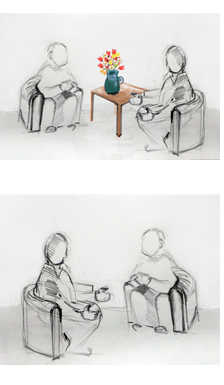Psychodynamic Therapy
Psychodynamic Therapy evolved from the Psychoanalytic tradition founded by the work of Sigmund Freud in the 1890s. These include the importance of a person's unconscious and how it influences their thoughts, feelings and behaviours, the importance of early and childhood experiences and the use of ego and defence mechanisms.
The aim of psychodynamic therapy is to bring the unconscious mind into consciousness. This means helping you to recognise, experience, and understand your true, deep-rooted feelings, in order to help you resolve them. Some of the work will be to explore the impact of early life and childhood, uncovering defence mechanisms which are used to avoid painful feelings and experiences and exploring feelings and patterns in relationships with others.
Through looking at these, I can help you to recognise recurring patterns, help you to see how you can avoid distress, and develop defence mechanisms to help you cope. With this insight, you can begin changing negative patterns to help you move forward.
I will help you to get a better insight into your life and the problems you are experiencing here and now. Based on the idea that our unconscious holds onto painful feelings and memories, psychodynamic therapy believes these are too difficult for your conscious mind to process.
In order to ensure these memories and experiences stay below the surface, many people will develop defences, such as denial and projections. According to psychodynamic therapy, these defences will often do more harm than good.
Psychodynamic Therapy can help you to uncover and recognise repressed emotions and unconscious influences, often from past experiences. These may be affecting present feelings and behaviours or causing emotional distress. Understanding root causes can often help people to make sense of their feelings and behaviours and put their emotional lives into perspective.
In therapy we will more often than not, journey back to earlier experiences, to uncover how specific people, patterns and events, are informing and influencing how you feel and behave today. It is at this point, where the work can then begin.
If you have a genuine interest in exploring yourself and seeking self-knowledge, as well as relieving symptoms, have the capacity for self-reflection, and are naturally curious about your internal life and behaviours, then this type of therapy should work well for you.



